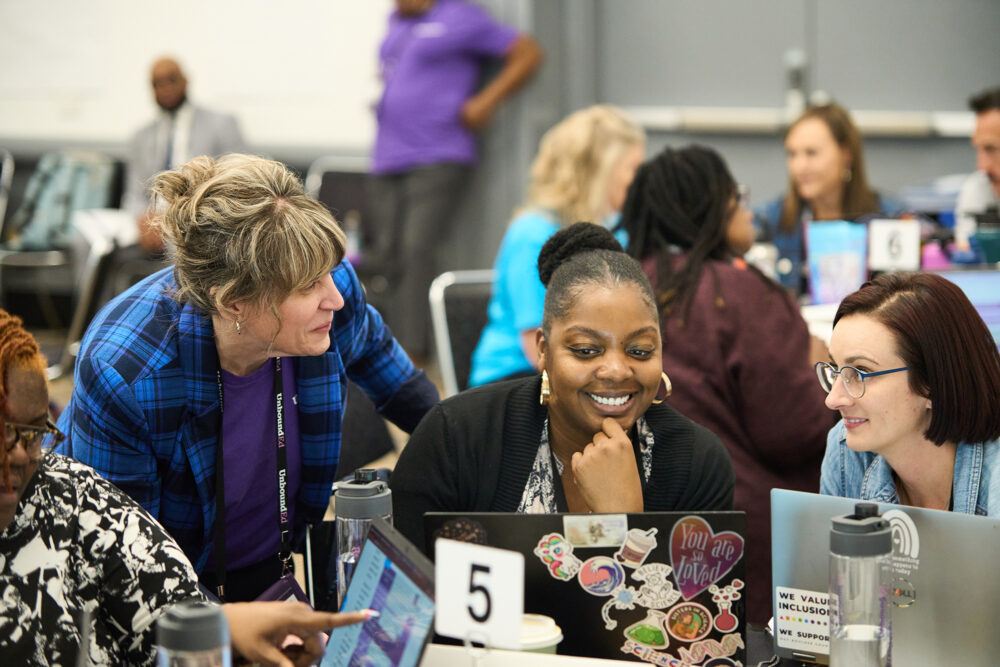
Here at UnboundEd, we’ve been having conversations with teachers and leaders from across the country about the five charges mentioned in the opening keynote. Shortly after Summer 2018 Standards Institute, we were honored to sit down with Leroy Gaines, principal of Acorn Woodland Elementary in Oakland, CA, and learn how the five charges inform his daily work, practice, and leadership.
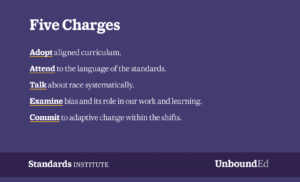
Q: Hello, Leroy! Thank you for taking the time to reflect on your Institute experience with us. Can you tell us about your week of learning in the Leadership I Pathway?
A: It was an incredible experience. Chiefly, it really solidified the things our school has been thinking about for the past year.
Intuitively we had been approaching these tenets already, but it was only at the Standards Institute that we finally had them articulated for us so clearly, so coherently. It really connected the dots. We came to the conclusion that teachers were doing too much curriculum development themselves, but this, particularly the research that was shared at the Standards Institute helped us articulate the consequences of having teachers develop their own curriculum.
We’ve had some key conversations in isolation. We’ve talked about prioritizing complex texts, viewing instructional practices through the lens of equity, and framing issues of race and bias for white teachers so they can hear it and be okay with their discomfort. Institute did a great job of bringing all those things together. It met all of our criteria.
Q: How has your team thought about charge 1—adopt aligned curriculum? Is there anything you would want to share with other leaders that are moving to the adoption of aligned, high-quality curriculum in their school or system?
A: To be honest, when we first presented the adoption of an aligned curriculum in the spring, there was a lot of pushback from our teachers, and that can cast doubt. The Institute reaffirmed our decision, however, and we were able to come back this week with our staff and revisit the discussion. We actually decided the best way to convince our teachers that an aligned curriculum is the right move was to sit them down and have them watch the entirety of the day one keynote speech. Miraculously, it did all the work of convincing our teachers to get on board.
Q: Wow, that’s amazing to hear!
A: Yup!
Q: How does your team attend to the language of the standards in their everyday work?
A: Last year that was the big obstacle for us, getting folks to plan their work around the standards. We tried to translate all these materials we had into being standards-aligned. It was a difficult charge. On top of that, many of our teachers said they understood the standards when in fact they didn’t really, which can be a problem.
Q: We’ve spent a lot of time talking about race, studying race, and thinking about how race impacts our work at UnboundEd. How have you addressed race in your school and with your staff?
A: We do a lot of work with the organization Our Family Coalition, which looks at the intersection of race and sexual orientation. We spend a lot of time helping our colleagues do the work of unpacking bias in themselves before they ever stand in front of students.
As a staff, we recently read a chapter of Culturally Responsive Teaching and The Brain by Zaretta Hammond and discussed the impact and implication of that on our work. We discussed unpacking white privilege, understanding how it relates to the classroom, and understanding why it’s important to match our instruction to the kids in front of us and to be culturally responsive and aware. This does not mean showing up to class with a mariachi band or rapping about geometry, but rather knowing and being sensitive to where students come from. It means knowing if they are coming from, for example, a more collectivist or individualist culture, and how that informs their learning, what the structure of support is at their home, etc.
It’s okay, and this is something that was emphasized at the Institute: that it’s okay to be uncomfortable with these conversations that we all need to be having. Being uncomfortable is a good thing, it is a necessary thing, and it will pass.
About Leroy Gaines
Leroy Gaines has been a school principal at Acorn Woodland Elementary in Oakland, CA for eight years. He began his career at Teach For America and spent four years as a classroom teacher in San Jose. He then worked for Partners in School Innovation, a San Francisco nonprofit focused on educational equity. As principal at Acorn Woodland, Gaines sits on the board of Our Family Coalition, a nonprofit working to support LGBTQ families and students through policy, advocacy, and professional development. He also serves as an executive principal working extensively with the district of Oakland, and he is on the board of the Local Principal Union. He has a Master’s degree from Columbia University’s Teacher’s College.
Next steps with GLEAM®
Choose the path that fits your team

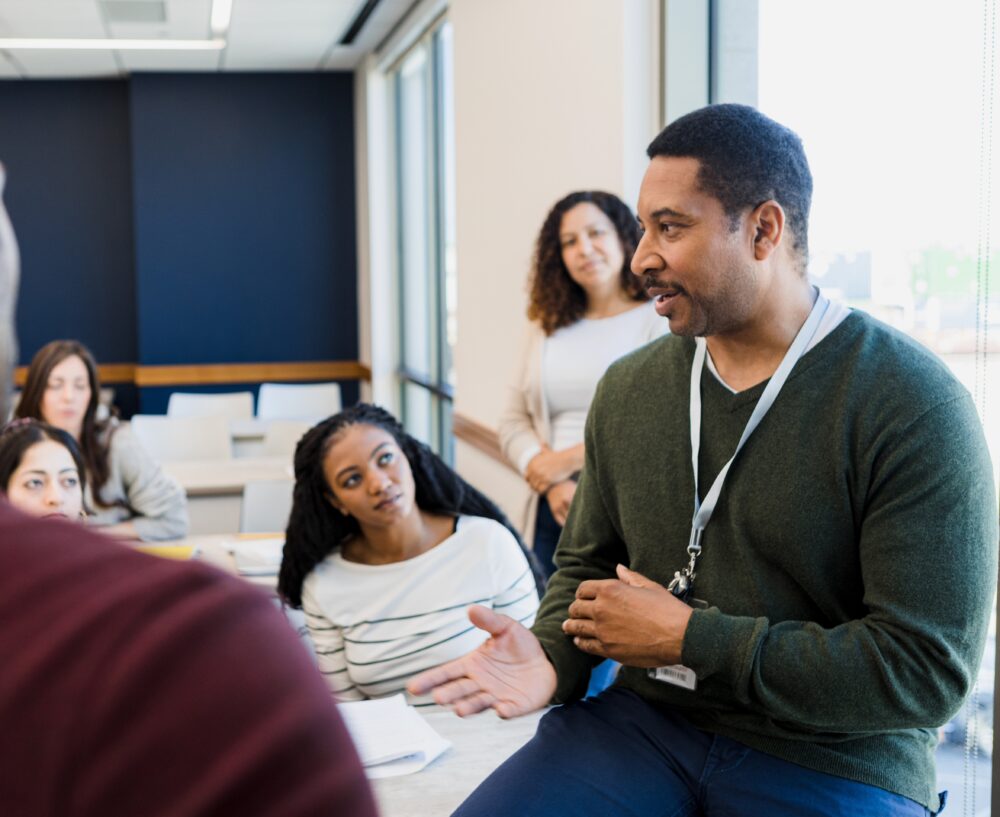
UnboundEd Summits
Accelerate your instructional vision and build educators’ skills and expertise with a virtual or on-site Local Summit.
Learn More ➜

In-Service Workshops
UnboundEd’s dynamic, hands-on workshops build educator capacity by focusing on timeless, cross-disciplinary instructional moves that drive effective instruction, rigor, and student empowerment.
Learn More ➜
Online Math Academy
UnboundEd’s Online Math Academy courses enrich educators’ content knowledge and instructional practices to unlock all students’ math potential.
Learn More ➜
Curriculum Adoption
Ensuring quality materials are adopted and used effectively is crucial to improving outcomes and requires a strong instructional materials selection process. We’re here to share guidance and support on leading a rigorous and collaborative curriculum adoption process to select the right materials for your context and goals.
Learn More ➜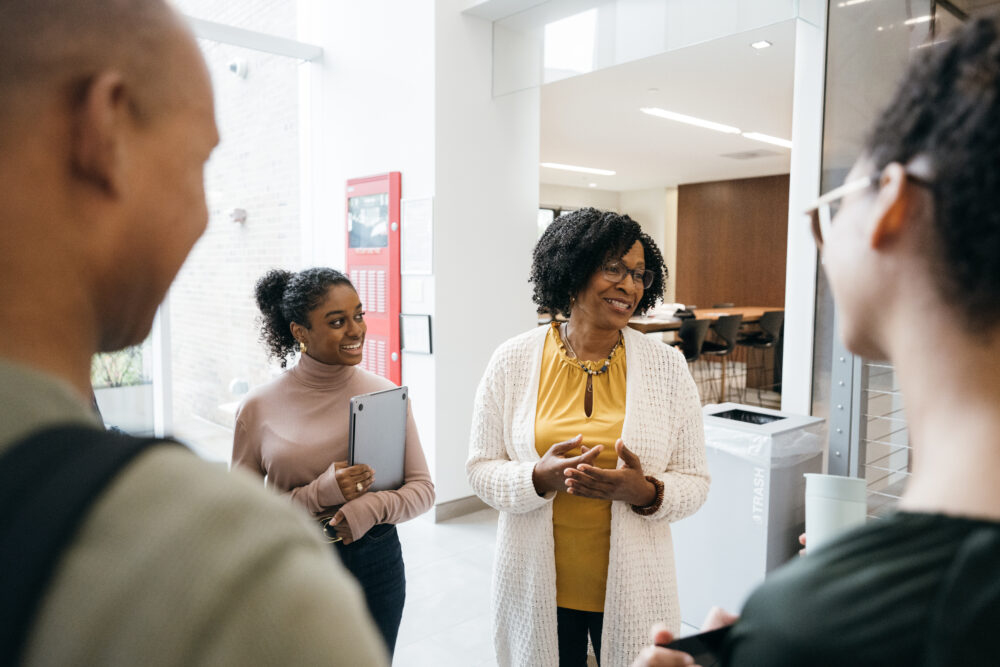
Curriculum Implementation
Just getting started, or need to get back on track? We work with you on a shared vision and an actionable plan for curriculum success.
Learn More ➜
Literacy ReclaimEd
Improve literacy instruction and better meet the unique needs of every student.
Learn More ➜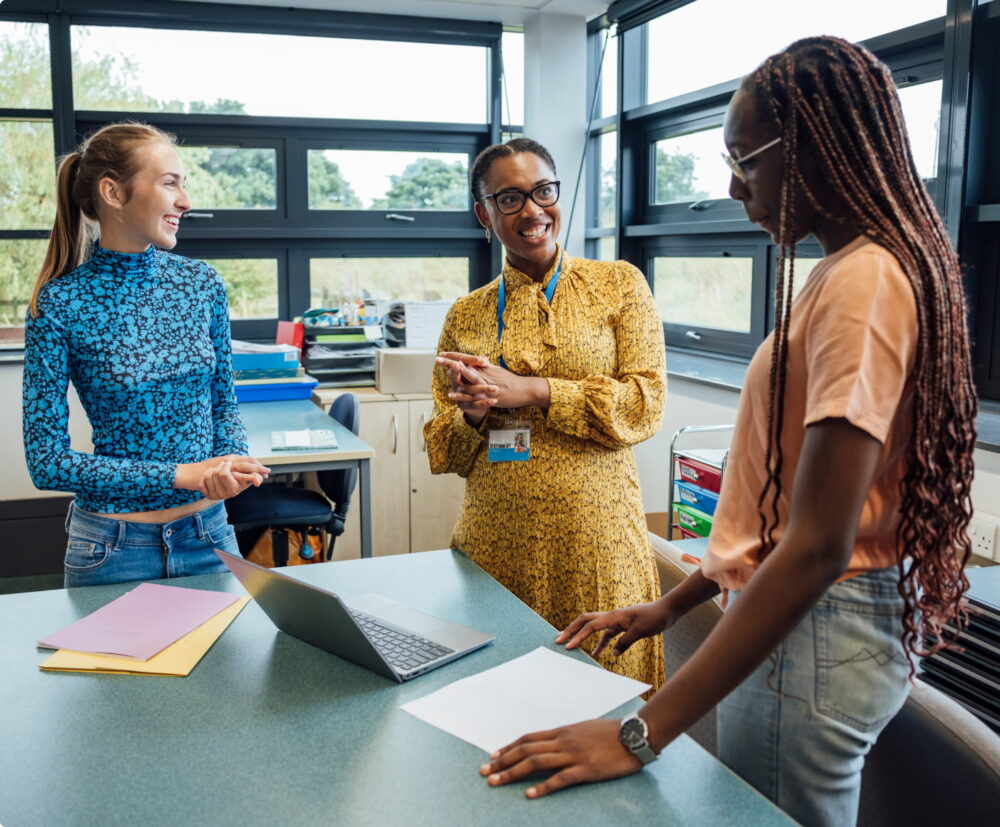
GLEAM® Inventory
Build your team’s understanding of grade-level, engaging, affirming, and meaningful –GLEAM®– instruction and transform how you serve all students in your district.
Learn More ➜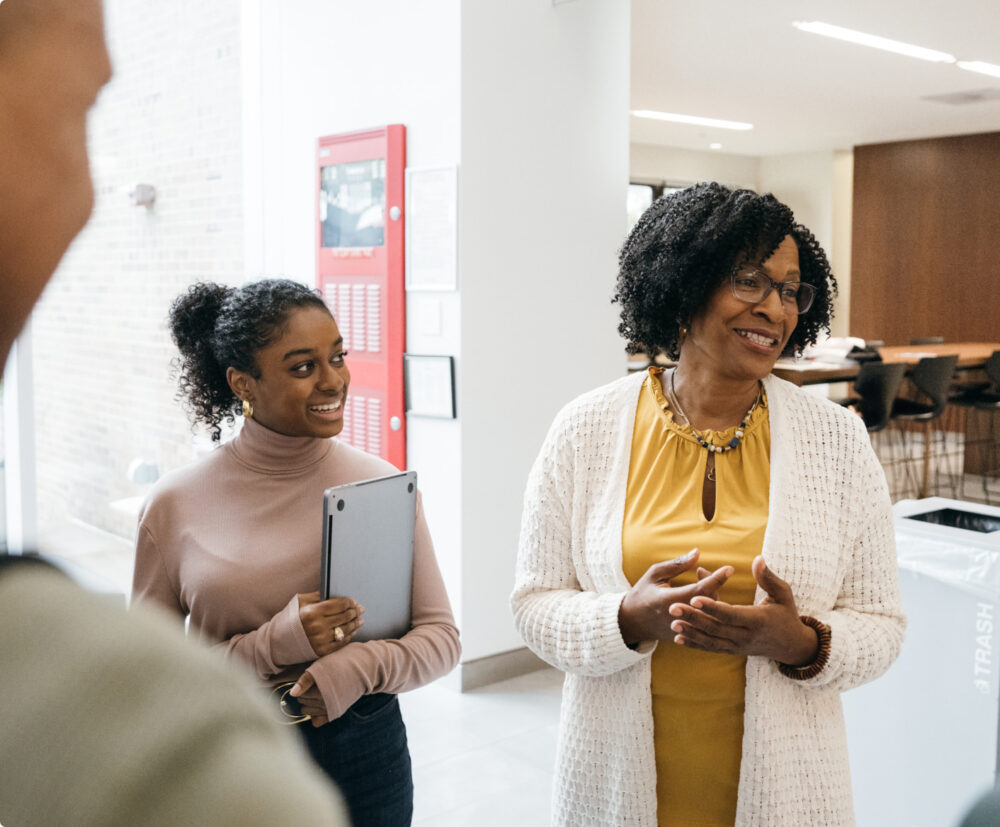
Speaking Engagements
Our experts offer inspiring, thought-provoking messages and conversations that will get your team thinking creatively about shifting mindsets and changing practice.
Learn More ➜
California Math Curriculum Adoption and Launch Cohort
Prepare to adopt and launch high-quality mathematics instructional materials with no-cost, grant-funded support from UnboundEd.
Learn More ➜